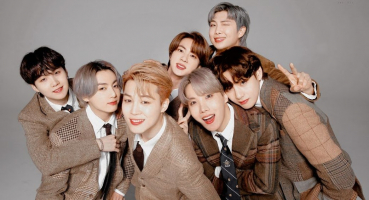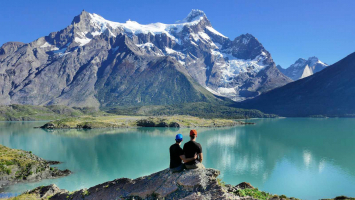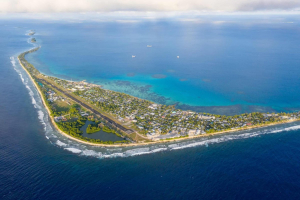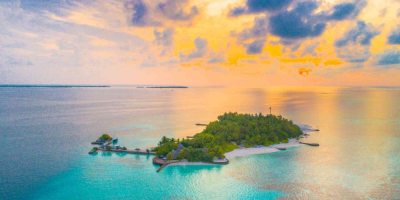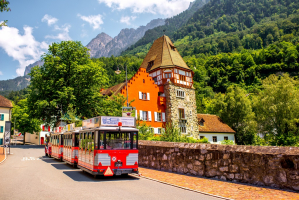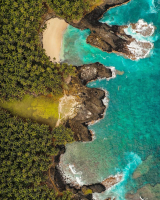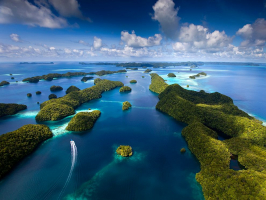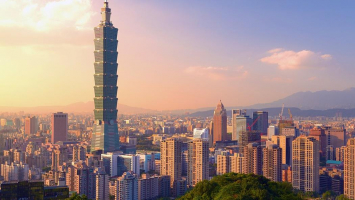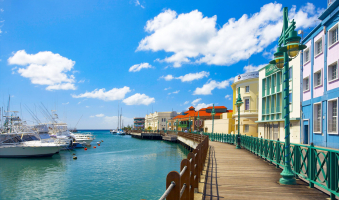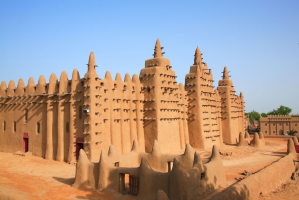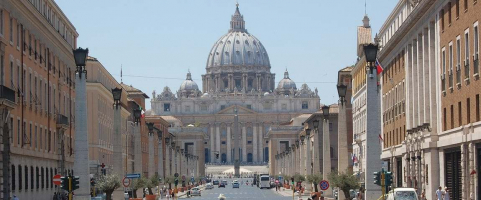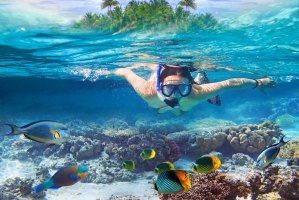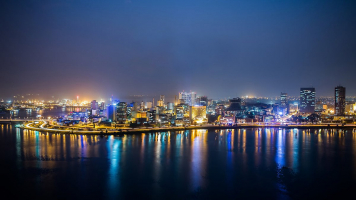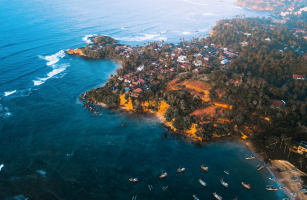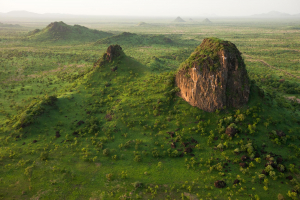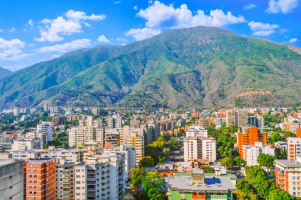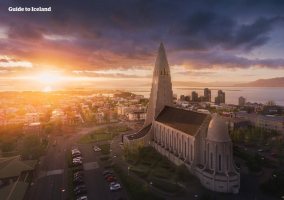Top 10 Popular Cosmetics Brands You Should Know
We are not too familiar with the famous cosmetic brands in the world, which are not only famous for their brands but also have excellent quality. These ... read more...cosmetic products help us have healthy, beautiful, radiant skin every time we go out. But not everyone knows about the corporations that own those famous cosmetic brands. Let's discover some popular cosmetics brands in the world with Toplist.info!
-
Founded in 1886, Johnson & Johnson is a multinational company with more than 130,000 employees. Its skincare brands include Neutrogena, Aveeno, NeoStrata, Dabao, and Dr.Ci: Labo; and haircare brands include Maui Moisture and OGX. The third-quarter 2021 results of Johnson & Johnson were nearly $23.33bn. The company’s Skin Health/Beauty segment in the Consumer Health business earned $3.7bn. Approximately 55.18% of the revenues came from the Pharmaceutical division while Consumer Health and Medical Devices divisions accounted for 17.01% and 27.79%, respectively.
At Johnson & Johnson, they believe good health is the foundation of vibrant lives, thriving communities, and forward progress. That’s why for more than 130 years, they have aimed to keep people well at every age and every stage of life. Today, as the world’s largest and most broadly-based healthcare company, they are committed to using their reach and size for good. They strive to improve access and affordability, create healthier communities, and put a healthy mind, body, and environment within reach of everyone, everywhere.
The company’s Skin Health/Beauty segment in the Consumer Health business, they are uniquely positioned to help improve personal health and skin by delivering products that are rooted in science and endorsed by professionals. As part of a fast-moving segment of healthcare, they move with speed to keep pace with Johnson & Johnson's consumers and deliver meaningful solutions. Their iconic skin health, self-care, and essential health brands help people live healthier lives, every day from their very first day.
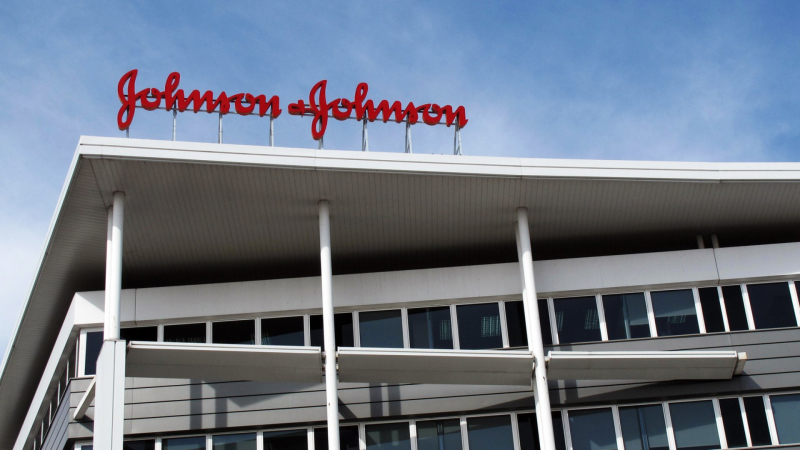
Johnson & Johnson headquarters 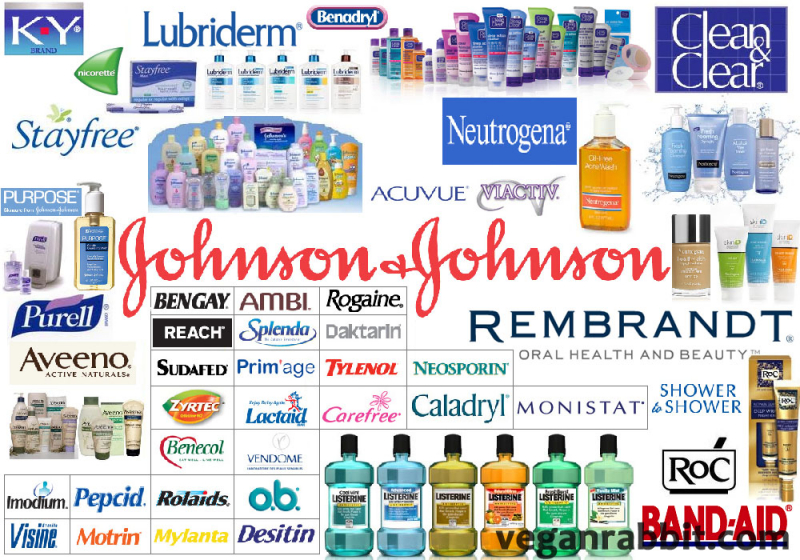
Cosmetics products of Johnson & Johnson -
Coty Inc. is an American multinational beauty company founded in 1904 by François Coty. With its subsidiaries, it develops, manufactures, markets, and distributes fragrances, cosmetics, skincare, nail care, and both professional and retail hair care products. Coty owns around 77 brands as of 2018 such as CoverGirl, Adidas body care, Max Factor, Nautica, and Rimmel. The company has licensing agreements with luxury brands such as Hugo Boss, Burberry, Chloé, Calvin Klein, Gucci, and Davidoff. Its products are available in more than 150 countries.
Cosmetic, skin, body care, fragrance, and hair brands company Coty achieved $4.71bn in net revenues, a 25% year-on-year decrease. It reported 38% of the revenues from the Americas, 49% from EMEA, and 12% from the Asia Pacific. The company’s Consumer Beauty business, which fell by 29% year-on-year, contributed 44.79% of the total revenues. The Luxury business recorded $2.6bn, a 21% decline year-on-year, and accounted for 55.2% of the total revenue.
Coty is a world leader in beauty and home to an illustrious roster of cosmetic, skincare, and fragrance brands. Coty has a mission: to challenge the definition of beauty, to encourage authenticity, and to celebrate diversity. Because to Coty, beauty is not about conforming to somebody else’s ideal. It’s about inclusion and liberating everyone to shine in your unique way.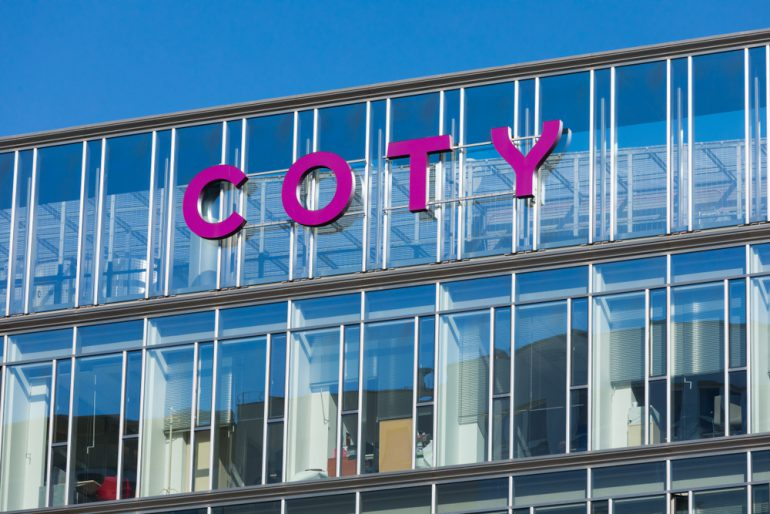
Coty headquarters 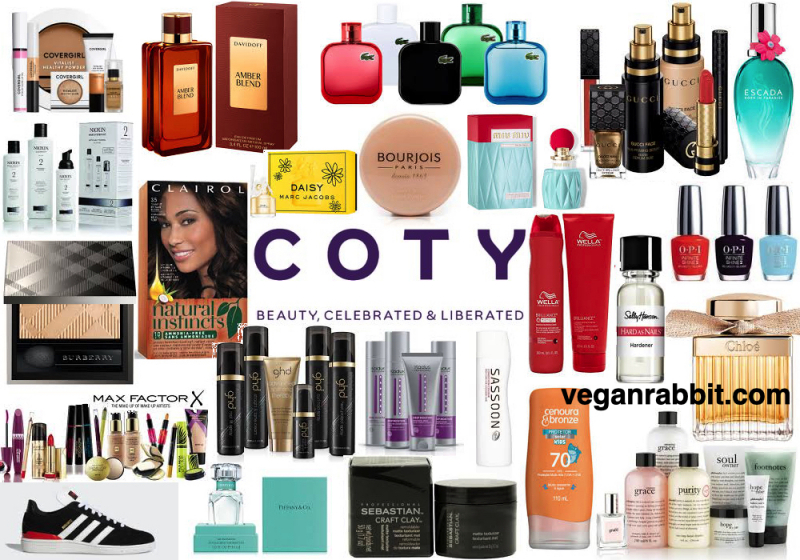
Cosmetics products of Coty -
Kao was established in 1887 by Tomiro Nagase as a manufacturer of domestic toiletry soap. Until 1940, they were known as Nihon Yuki Company, changing their name to Kao Soap Company, and finally in 1985 to Kao Corporation. Kao operates through two business segments, namely consumer products, and chemicals. Divisions in consumer products include Cosmetics, Human Health Care, Skin Care & Hair Care, and Fabric and Home Care. Products owned by Kao includes Bioré, Goldwell, John Frieda, Curél...
Japanese chemical and cosmetics company Kao’s sales revenues decreased by 8% to JPY1.38tn ($13.14bn). Kao's Cosmetics and Skin Care & Hair Care businesses recorded a combined revenue of JPY543bn ($5.17bn). The Cosmetics division fell by 22.4% year-on-year, mainly affected by reduced demand and temporary store closures since the Covid-19 epidemic spread around the world. Kao expects to achieve a 3.5% increase in revenues in 2021 over the previous year. Its operating income is projected to increase by 0.8% to JPY177bn ($1.68bn).
In 2020, Kao Corporation was ranked the #4 out of 42 companies in the Corporate Knights Industry Group’s Personal Care and Cleaning Products category, recognized for its excellence in innovation capacity, employee retention as well as clean revenue, or revenue from all goods and services which have clear environmental benefits. For the company's national and international experience in sustainable development and eco-friendly products, the Environment Possibility Award conferred the "Environmental Heroes of the Year" to Kao Corporation in 2020

Kao headquarters 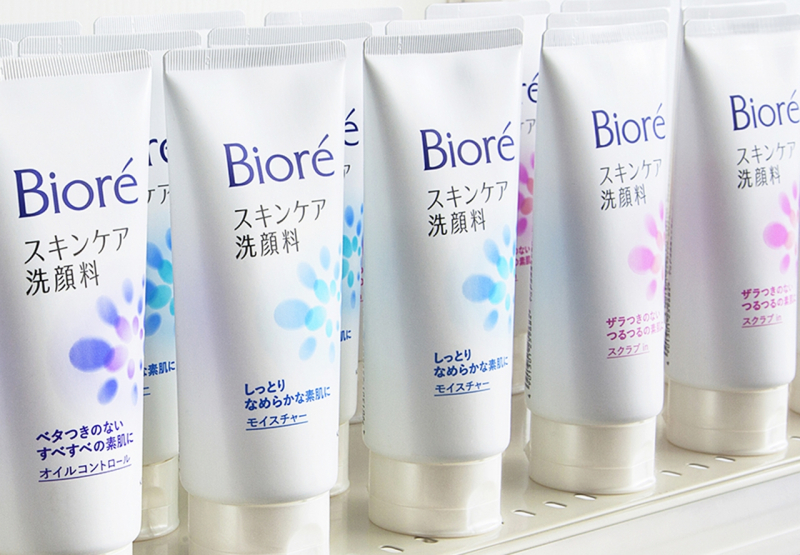
Kao's products -
LVMH is a French-holding multinational corporation and conglomerate specializing in luxury goods, headquartered in Paris, France. The company was formed in 1987 through the merger of fashion house Louis Vuitton (founded in 1854) with Moët Hennessy, which was established after the 1971 merger between the champagne producer Moët & Chandon and the cognac producer Hennessy. In 2021 with a valuation of $329 billion, LVMH became the most valuable company in Europe. LVMH controls around 60 subsidiaries that each manage a small number of prestigious brands, 75 in total. These include Louis Vuitton, Givenchy, Tag Heuer, Bvlgari, Tiffany & Co., Acqua Di Parma, Marc Jacobs Beauty, Kenzo Parfums, Christian Dior Parfums, Make Up For Ever...
LVMH’s Perfumes & Cosmetics activities benefit from exceptional dynamism that relies on both the longevity and development of key lines and on the boldness of new creations. The brands cultivate what makes them unique and is guaranteed to make them stand out for their devotees in a highly competitive global market. The success of the Perfumes & Cosmetics division depends on finding the right balance between major historic houses. All are driven by the same values: a quest for excellence, creativity, innovation, and perfect mastery of their image.LVMH reported €44.65bn ($54.26bn) in revenue, a 17% year-on-year decrease from €53.67bn ($65.23bn) in 2019. Its Perfumes & Cosmetics business accounted for 11.7% of the total sales revenues. Revenues from Perfumes & Cosmetics witnessed a 23% decline to €5.24bn ($6.36bn). The Perfumes & Cosmetics brands, however, returned to a growth trajectory in the second half of 2020, driven by demand for skincare and a surge in online sales, especially in Asia. LVMH’s Christian Dior brand recorded improved performance in the second half, due to the success of Miss Dior Roses N’Roses and J’adore Infinissime perfumes, as well as Rouge Dior make-up.
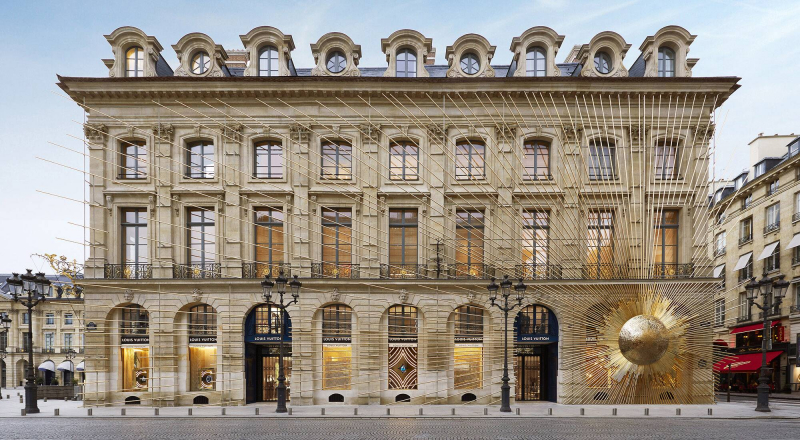
LVMH headquartered 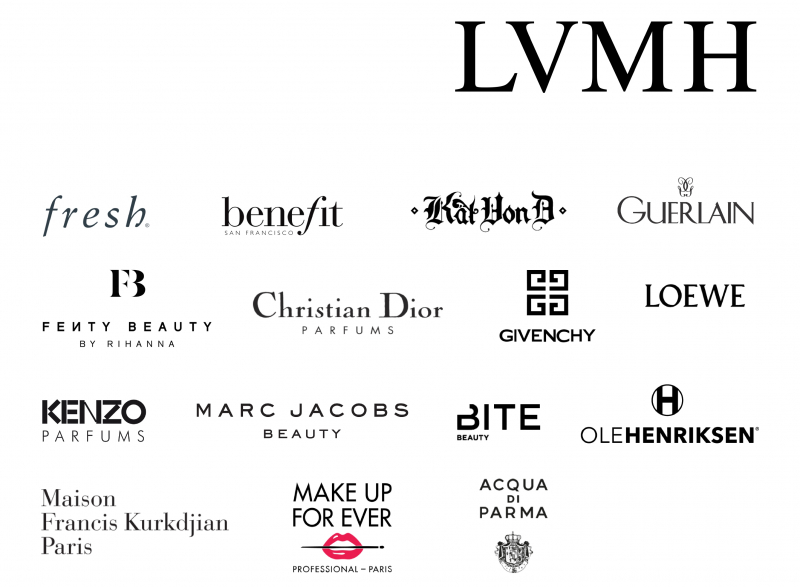
LVMH subsidiaries -
Beiersdorf AG is a German multinational company that manufactures and retails personal-care products and pressure-sensitive adhesives. Beiersdorf owns several brands such as Nivea, La Prairie, Eucerin, Labello, Hidrofugal, Gammon, Coppertone, Chaul, and Maestro in the consumer business segment. Its other business segment, tesa, is involved in self-adhesive systems and solutions.
The company was founded in 1882 by pharmacist Paul Beiersdorf in Hamburg and sold to Oscar Troplowitz in 1890. Paul C. Beiersdorf's patent for the manufacture of coated plasters, dated 28 March 1882, is regarded as the foundation date of the company. In 1909, Beiersdorf's first lip care stick, named Labello, was launched. Troplowitz kept working with his scientific consultant Paul Gerson Unna and the German chemist Isaak Lifschütz on a new skincare cream. As Lifschütz found the emulsifier Eucerit, the basic ingredient of the Nivea Crème was finally there, and Beiersdorf started selling the skincare cream in December 1911.
Beiersdorf reported €5.7bn ($6.91bn) in revenue in 2020, a 9.1% decline compared with 2019. The sales performance was mainly affected by the Covid-19 pandemic. The company, however, increased its market share in emerging markets and recorded higher sales growth in Brazil. Beiersdorf’s main brand Nivea recorded a 10.8% drop in sales to €3.95bn ($4.79bn) while sales of the Derma business unit grew by 5.2%, driven by strong double-digit sales growth in South America and the US.
Throughout Beiersdorf's history, they have built trust by staying close to our consumers and developing innovative skin care brands that are tailored to customer needs. They work as one global team, with one focus: making people feel good in their skin. Everywhere, every day. As they head into the future, Beiersdorf wants to become the number one skincare company in the world.
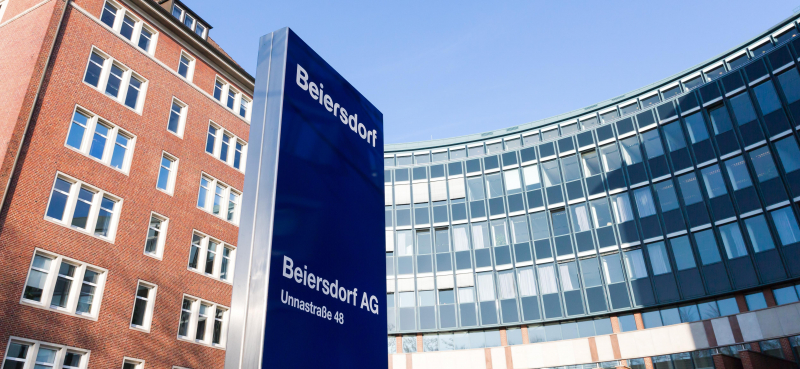
Beiersdorf headquarters 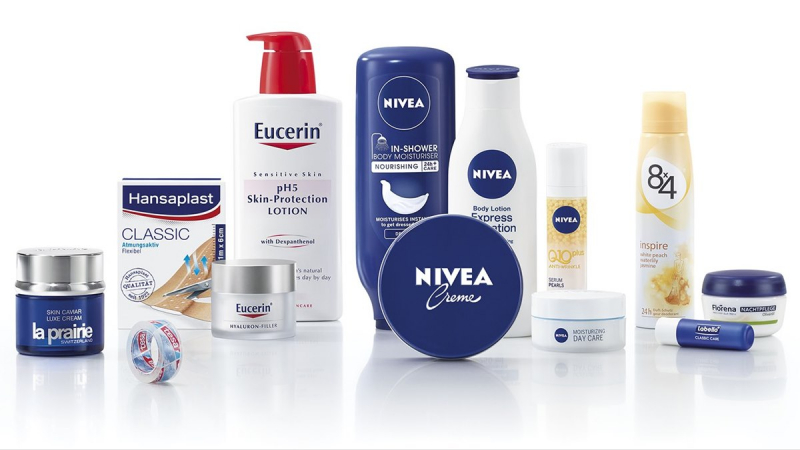
Beiersdorf's products -
Shiseido Company is a Japanese multinational cosmetic company. Its product categories consist of skincare, makeup, body care, hair care, and fragrances. It is one of the oldest cosmetic companies in the world. Founded in 1872, Shiseido celebrated its 140th anniversary in 2012. It is the largest cosmetic firm in Japan and the fifth largest cosmetic company in the world. Shiseido owns numerous brands and subsidiaries worldwide, in addition to its founding label. The company is headquartered in Tokyo and is traded on the Tokyo Stock Exchange.
Shiseido witnessed an 18.6% year-on-year fall in net sales to JPY920.88bn ($8.73bn). Its Japan Business segment accounted for 32.9% of the total sales while the China Business contributed 25.9%, with the remaining revenues coming from Americas (9.9%), EMEA (10.3%), Travel Retail (10.7%), Asia Pacific (6.4%), Professional (1.4%) and Other (2.8%) business. The company is investing in the premium skin beauty category and digital platforms to enhance growth. Its net sales are projected to increase by 19% JPY1.1tn ($10.43bn) in 2021, primarily driven by a 33% growth in China and 27% growth in the Americas.
Shiseido believes that beauty can be found everywhere, in everything, and everyone, Shiseido suppose that beauty is deeper than what we can easily see. Beauty is a shared emotion, which is diverse, and unified. When we feel beautiful and confident, we are inspired to make a positive difference in everyone's lives. Shiseido combines the unique features of products textures, colors, and fragrances with Japan's unique aesthetic values to deliver products that nourish the body and the soul. Beauty inspires confidence, openness, and sharing, always seeing the values of yourself and those around you.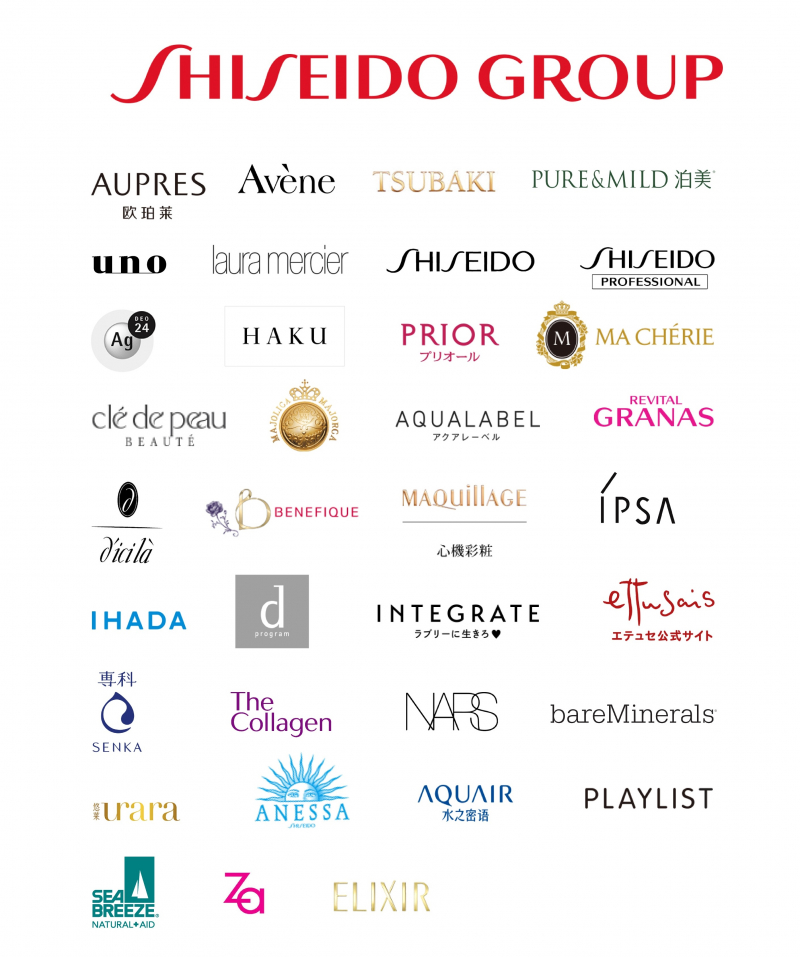
Shiseido subsidiaries 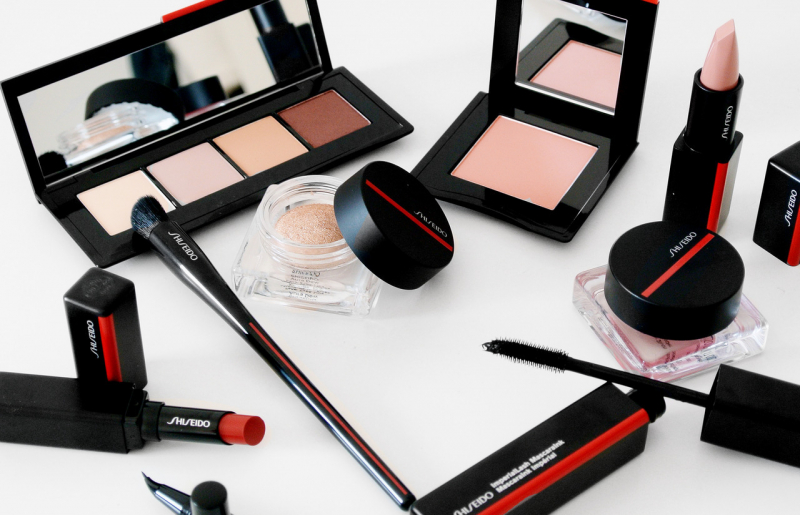
Shiseido's products -
The Estée Lauder Companies Inc is an American multinational manufacturer and marketer of skincare, makeup, fragrance, and hair care products, based in Midtown Manhattan, New York City. The company owns a diverse portfolio of brands, distributed internationally through both digital commerce and retail channels. Brands owned by Estée Lauder include Aerin, BECCA, Bobbi Brown, Clinique, Darphin, DECIEM by Brandon Truaxe, Estée Lauder, Forest Essentials, GLAMGLOW, La Mer, Lab Series, MAC Cosmetics. Estée Lauder’s portfolio includes more than 25 brands that are available in 150 countries. The beauty products firm has more than 48,000 employees worldwide.
Temporary retail store closures due to the coronavirus pandemic triggered a 4% year-on-year fall in Estée Lauder’s net sales to $14.29bn. It was partially offset by an increase in sales through online channels. The company’s revenues were also boosted by net sales of perfumes and cosmetics maker Have&Be, which was acquired by Estée Lauder in December 2019. The company implemented digital strategies to enhance sales by tapping online customer demand during the second half of 2020.
Estée Lauder’s skincare products category showed resilience, recording a 12.68% growth to achieve net sales of $7.38bn. Estée Lauder’s earnings in the Americas and Europe, the Middle East & Africa decreased year on year by 20% and 3%, respectively. The Asia Pacific region, however, saw a 15% increase in net sales, with a particularly strong performance in Mainland China.
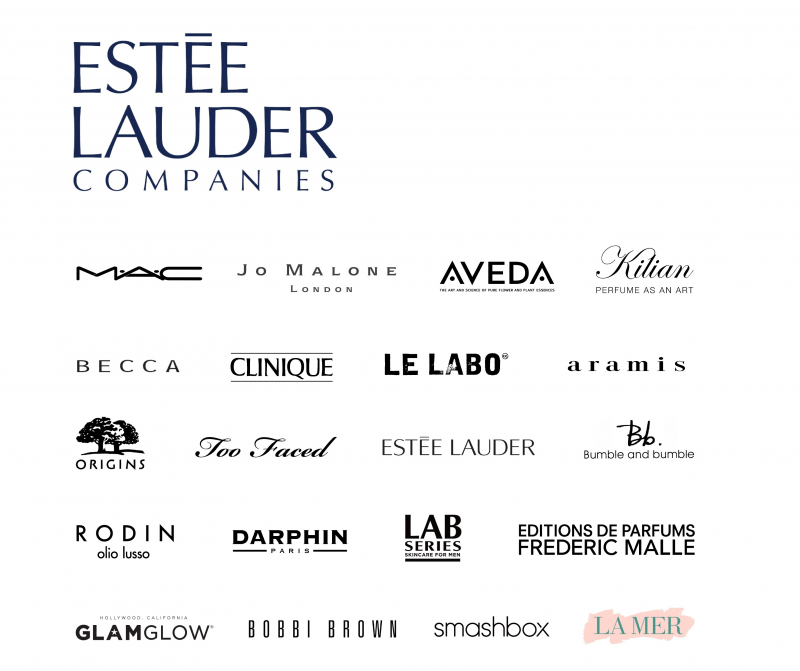
Estée Lauder subsidairies 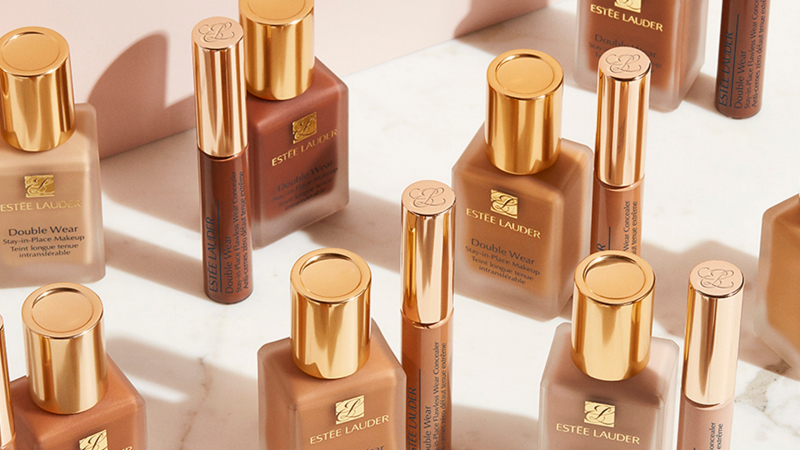
Estée Lauder's products -
The Procter & Gamble Company (P&G) is an American multinational consumer goods corporation headquartered in Cincinnati, Ohio, founded in 1837 by William Procter and James Gamble. It specializes in a wide range of personal health/consumer health, and personal care and hygiene products; these products are organized into several segments including Beauty; Grooming; Health Care; Fabric & Home Care; and Baby, Feminine, & Family Care. Some brands owned by P&G include Native, Olay, SK-II, Gillette, Snowberry, Old Spice...
Procter & Gamble (P&G) saw a 4.8% increase in net sales from $67.68bn in 2019 to $70.95bn in 2020, mainly driven by a 10% rise in net sales of its Health Care business. Combined revenues from Beauty and Grooming segments stood at $19.41bn, a 1.72% year-on-year increase. The Beauty segment’s net sales rose 4% year-on-year to $13.35bn, while earnings from sales of Grooming segment products fell by 2% to $6.06bn. The Beauty and Grooming segments together contributed to 28% of the company’s net sales in 2020.
Over 181 years, P&G has challenged conventions, led innovation, and helped shape culture. But no matter how much P&G grow, they always keep ourselves grounded in their deep-rooted purpose, values, and principles and an unwritten acknowledgment between their company and colleagues that being their best for one another, for the people who buy P&G's products, and for the world around them will lead to mutual success.
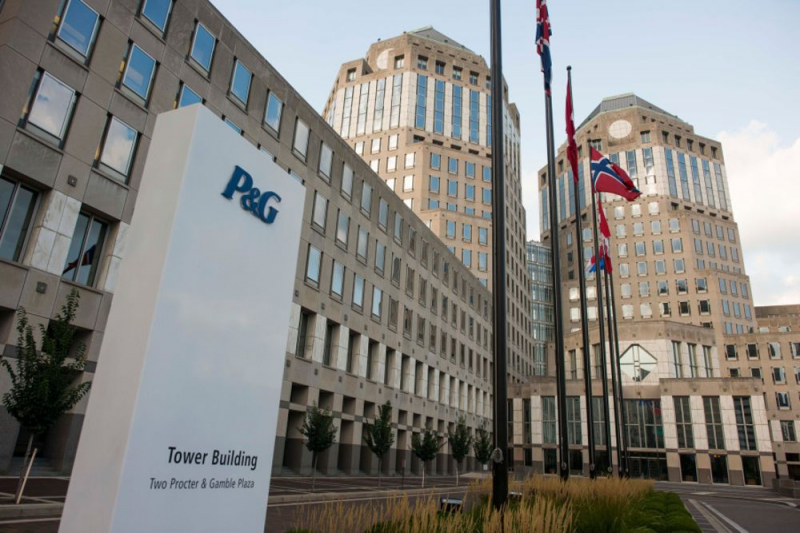
P&G headquarters 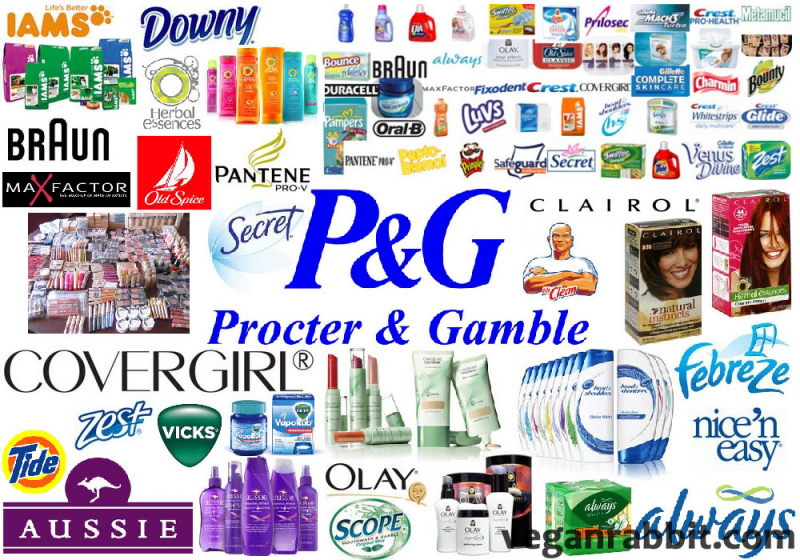
P&G subsidiaries -
Unilever PLC is a British multinational consumer goods company headquartered in London, England. Unilever products include food, condiments, ice cream, wellbeing vitamins, minerals and supplements, tea, coffee, breakfast cereal, cleaning agents, water and air purifiers, pet food, toothpaste, beauty products, and personal care. Unilever is the largest producer of soap in the world. Unilever's products are available in around 190 countries.
Unilever owns over 400 brands, with a turnover in 2020 of 51 billion euros, and thirteen brands with sales of over one billion euros: Axe/Lynx, Dove, Omo/Persil, Heartbrand (Wall's) ice creams, Hellmann's, Knorr, Lipton, Lux, Magnum, Rexona, Lifebuoy, Sunsilk and Sunlight. Unilever is organized into three main divisions: Foods and Refreshments; Home Care; and Beauty & Personal Care. It has research and development facilities in China, India, the Netherlands, the United Kingdom, and the United States.
Unilever’s revenues fell 2.4% year-on-year to $60.99bn in 2020. The company’s Beauty & Personal Care segment registered the highest revenues among its various business units. The segment reported $25.38bn in revenue, which is approximately 41.61% of the total turnover. Approximately 20.71% of Unilever’s turnover came from the Home Care division, while the Foods & Refreshment business contributed the remaining 37.67%.
Unilever wants to create more good for the planet and society besides limiting the harm. They want to take action to solve the social and environmental problems facing the world and want to improve people's lives with their products. Unilever has been pioneering, innovating, and shaping the future for more than 120 years, and will continue to do so. The company plans to achieve its goals sustainably.
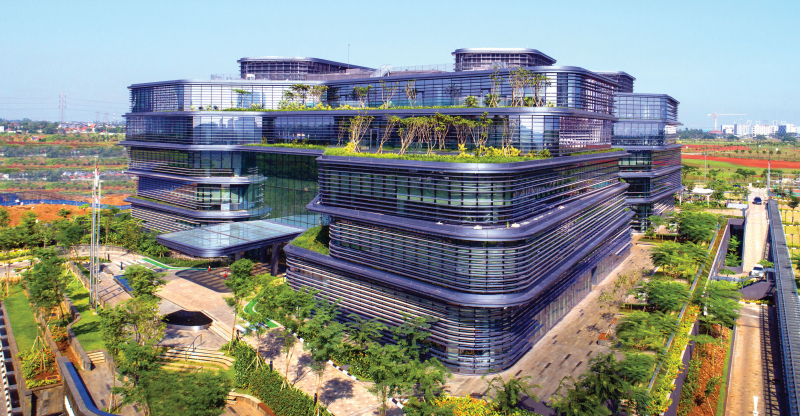
Unilever subsidiaries 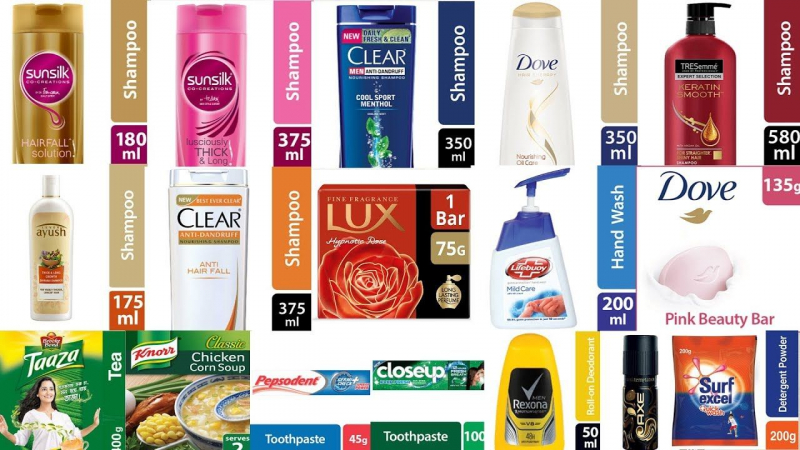
Unilever's products -
L’Oréal is the world’s largest cosmetics group with a presence in 150 countries. The company creates and develops cosmetic products across skincare, haircare, make-up, and perfumes. It has 36 brands in its portfolio, including L’Oréal Paris, Vichy, Garnier, Yves Saint Laurent Beauté, Garnier, NYX, Kiehl's, Shu Umera, Cerave, La Roche Posay, Lancôme, Giorgio Armani Beauty, Ralph Lauren, Maybelline New York, 3CE, and Biotherm.
French cosmetics company L’Oréal achieved €27.99bn ($33.93bn) in revenues from group sales in 2020, a 6.29% decline from €29.87m ($36.21m) in 2019. The company’s Consumer Products division contributed approximately 41.8% of the revenues while its L’Oréal Luxe division accounted for 36.33% of the sales. Approximately 22% of the revenue came from the Professional Products and Active Cosmetics businesses.
For more than 110 years, L’Oréal has devoted our energy and our competencies solely to one business: beauty. They have chosen to offer their expertise in the service of women and men worldwide, meeting the infinite diversity of their beauty desires. L’Oréal is committed to fulfilling this mission ethically and responsibly. L’Oréal believes that the quest for beauty unites them all. It is a fundamental need that goes beyond mere “appearance” and taps deep into human aspirations: a sense of belonging, self-realization, self-confidence...
L’Oréal strives to help women and men all over the world fulfill these aspirations, while understanding and respecting all the nuances in cultures, needs, and traditions. Therefore, L’Oréal’s mission is to offer to all women and men the best of beauty in terms of quality, efficacy, safety, and responsibility. With such strong foundations, they conceive and build an infinite diversity of beauty products and services to share the best of beauty with everyone, everywhere.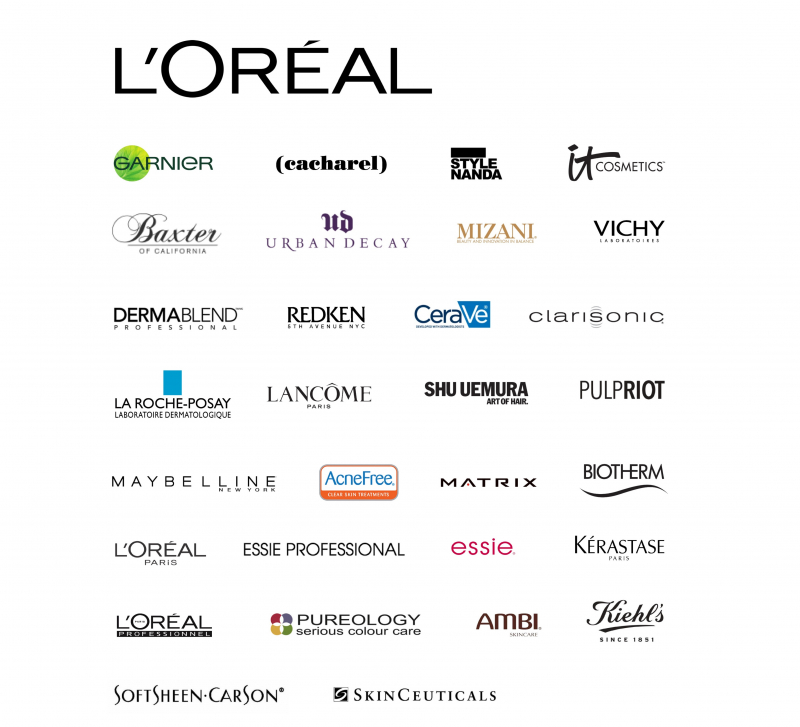
L’Oréal subsidiaries 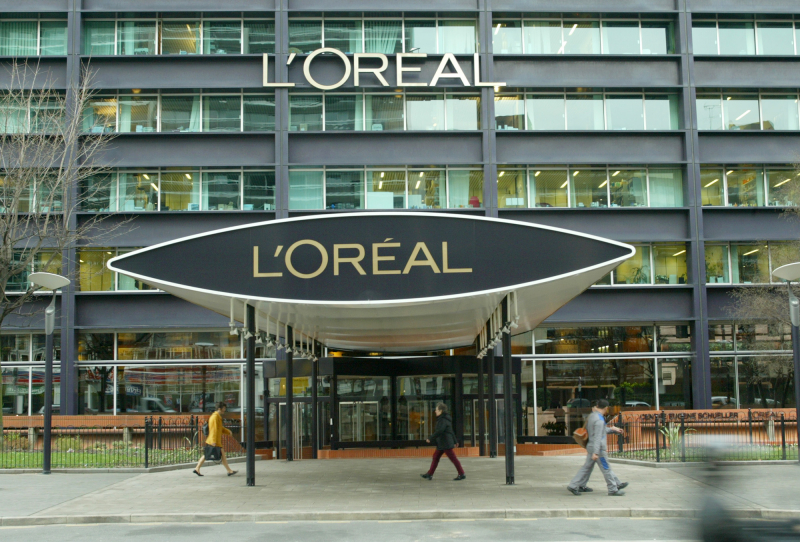
L’Oréal Headquarters












